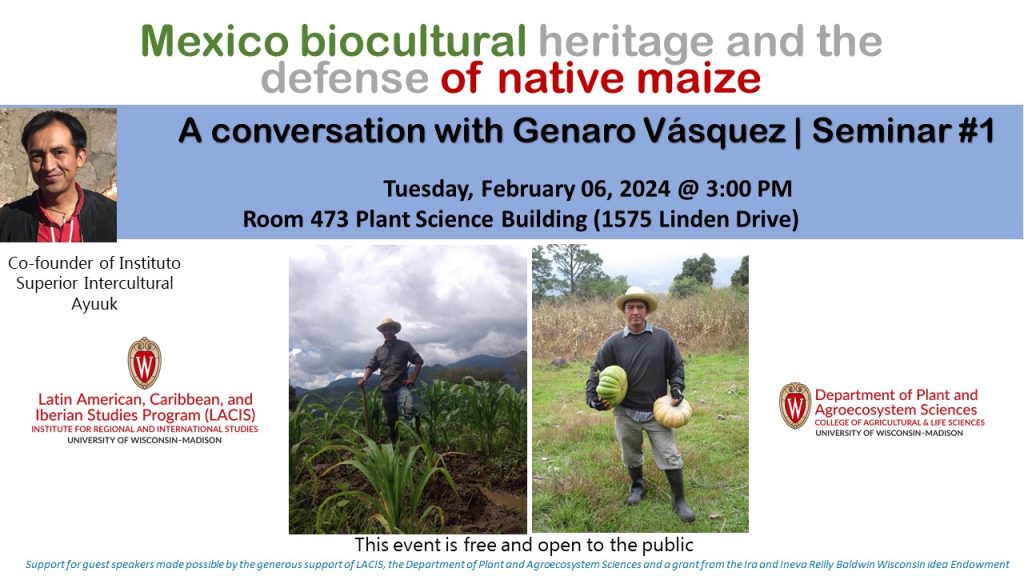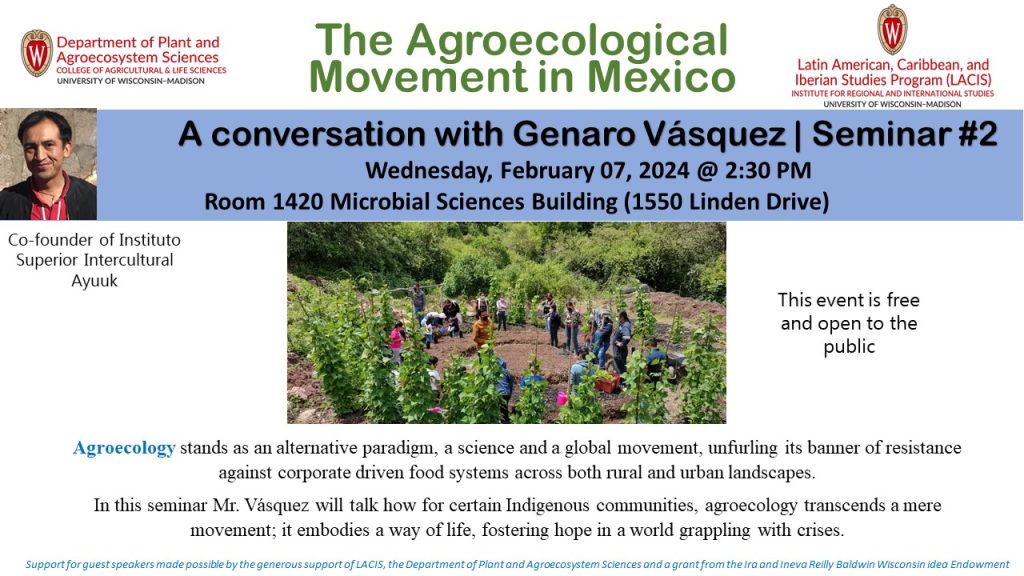Oaxacan visiting scholar to give talks on the biocultural heritage of maize in Mexico and the country’s agroecological movement – Feb. 6-7
Genaro Vasquez, Indigenous scholar from Oaxaca, Mexico and co-founder of Ayuuk Intercultural Institute, will give two talks on the UW–Madison campus during the week of Feb. 5. The seminars are hosted by the Latin American, Caribbean and Iberian Studies program and the Department for Plant and Agroecosystem Sciences. See below for details.

Seminar 1: Mexico biocultural heritage and the defense of native maize
Feb. 6, 3:00 p.m.
Room 473, Plant Sciences Building
In this seminar, Vasquez will provide some context to understand the relevance of native maize for Mexico and the challenges that the modern food system poses to the livelihoods of rural people in his community of Tlahuitoltepec, Oaxaca. For over 10,000 years, Mexico has been at the center of the domestication of corn. However, the advent of the green revolution and other extractive economic policies poses a threat to Mexico by extracting and appropriating both knowledge and biological resources. This jeopardizes the traditional livelihoods of communities and Indigenous territories that share intricate connections with corn, relying on native varieties as a staple crop in their diets and as a way of life. In response, various movements and projects have emerged to actively resist and defend this precious biocultural heritage.

Seminar 2: The agroecological movement in Mexico and the role of Indigenous people in the face of global crisis
Feb. 7, 2:30 p.m.
Room 1420, Microbial Sciences Building
Vasquez’s second seminar will explore agroecology, which for many stands as an alternative paradigm, a science and a global movement, unfurling its banner of resistance against corporate driven food systems across both rural and urban landscapes. Agroecology is a contested realm, caught in the struggle and tensions between commercial agriculture and subsistence farming. This talk will focus on how, for certain Indigenous communities, agroecology transcends a mere movement; it embodies a way of life, fostering hope in a world grappling with crises.

